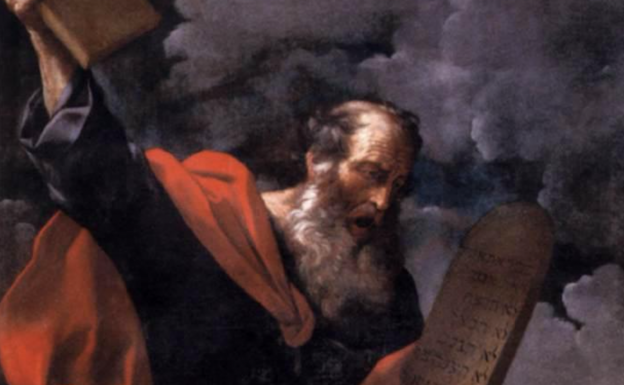Back when I watched enough television to run into advertisements, I noticed how a lot of the ones advertising sugar-free foods played on the idea of enjoying the sweet sweet taste of cake without suffering the consequences on the waistline. It works because for those of us who keep watch on our weight, we want to balance taste and waist.
Unfortunately often in life, and especially when it comes to sin, we cannot escape or trade off the consequences. Sin is rebellion against God, and it brings consequences. Like Israel, we must leave sin behind, take sides with God, put sin to death, and acknowledge that sin has consequences. Thankfully, God has placed the worst of those consequences on Christ, not on us.
While the golden calf had been burnt, smashed, ground up, and dumped into the water supply, the consequences had not yet become clear. The first thing needed was for Israel to take sides, preferably with God.
Unfortunately, the camp was still in a state of carnage. “Moses saw that the people had broken loose (for Aaron had let them break loose, to the derision of their enemies)” (v.25). God’s people were indulging in the sinful immorality which came with pagan worship. It was a chaotic scene of disorder and unrestrained behaviour.
Their behaviour, while freely participating in themselves, was the result of Aaron’s lack of godly leadership. Aaron had failed to lead them in paths of righteousness, but instead had indulged and led them into sins.
This was not the vision God had for Israel as his people in the surrounding nations. They were to be set apart, holy, and live according to his laws and morals as a witness to the nations around them. Engaging in the same acts while claiming to be something better made them look like hypocrites, and a laughing-stock to the nations around.
Moses needed to take action to reassert control and order, so he did. He called out “Who is on the LORD’s side? Come to me” and the Levites (his own tribe) left behind their participation in the sinful idolatry and joined Moses (v.26). He called out to Israel asking them to take a side, and one way or another, everyone did.
To those who had rallied to Moses, he called on them to put sin to death. Partly, in answering his call, they had done this by repenting of their rebellion and joining Moses. But they also needed to demonstrate their renewed allegiance to God.
They would do this by taking up swords, to go “throughout the camp, and each of you kill his brother and his companion and his neighbor” which led to about 3,000 dieing (vv.27-8). They literally put sin to death and restored order by killing their own people, even if they were relatives.
While it is likely that those killed were in some way many of the ringleaders or more enthusiastic participants, this does shock us today. Even though only about 0.5% of Israel were killed, it shows how we must choose God even over anyone or anything else in life.
The Levites who did this showed their dedication to God, and God blessed them as set apart for his service (v.29).
Yet Israel still needed to acknowledge the consequences of their sin. Moses warned Israel of their great sinfulness, and attempted to make atonement for their people (vv.30-31). He confessed the people’s sins, and even offered his own damnation as a substitute for the people (v.32).
God did not accept Moses’ offer. God promised to lead the people to the Promised Land, but those who sinned still had to suffer the consequences of idolatry and immorality (vv.33-4). God sent a plague on the people, because they could not transfer their sins to Moses as a substitute (v.35).
The reason that God could not accept Moses as a substitute for his people is simple: Moses was not Jesus. Moses was not sinless, but was himself a sinner and as a descendant of Adam also held Original Sin.
But Moses did understand that sin results in a penalty – in consequences including death and damnation (being blotted out of God’s book). Moses also understood that if we as sinners are to avoid that penalty, then we must atone for those sins to turn aside God’s wrath. And if we are to avoid that penalty personally, it must be paid by a substitute.
Christ bore the consequences for us in his death on the Cross. As a substitute for us, Jesus paid the penalty for our sins and turned aside God’s wrath so our relationship with God could be restored. And because Jesus was our substitute, we can carry on walking to the Promised Land of our eternal home with God.
Since Jesus has already taken the consequences for us, what better way to give thanks but to take God’s side and put sin to death in our lives? Because while we will still suffer sin’s consequences, we will never be blotted out of God’s book of life.


